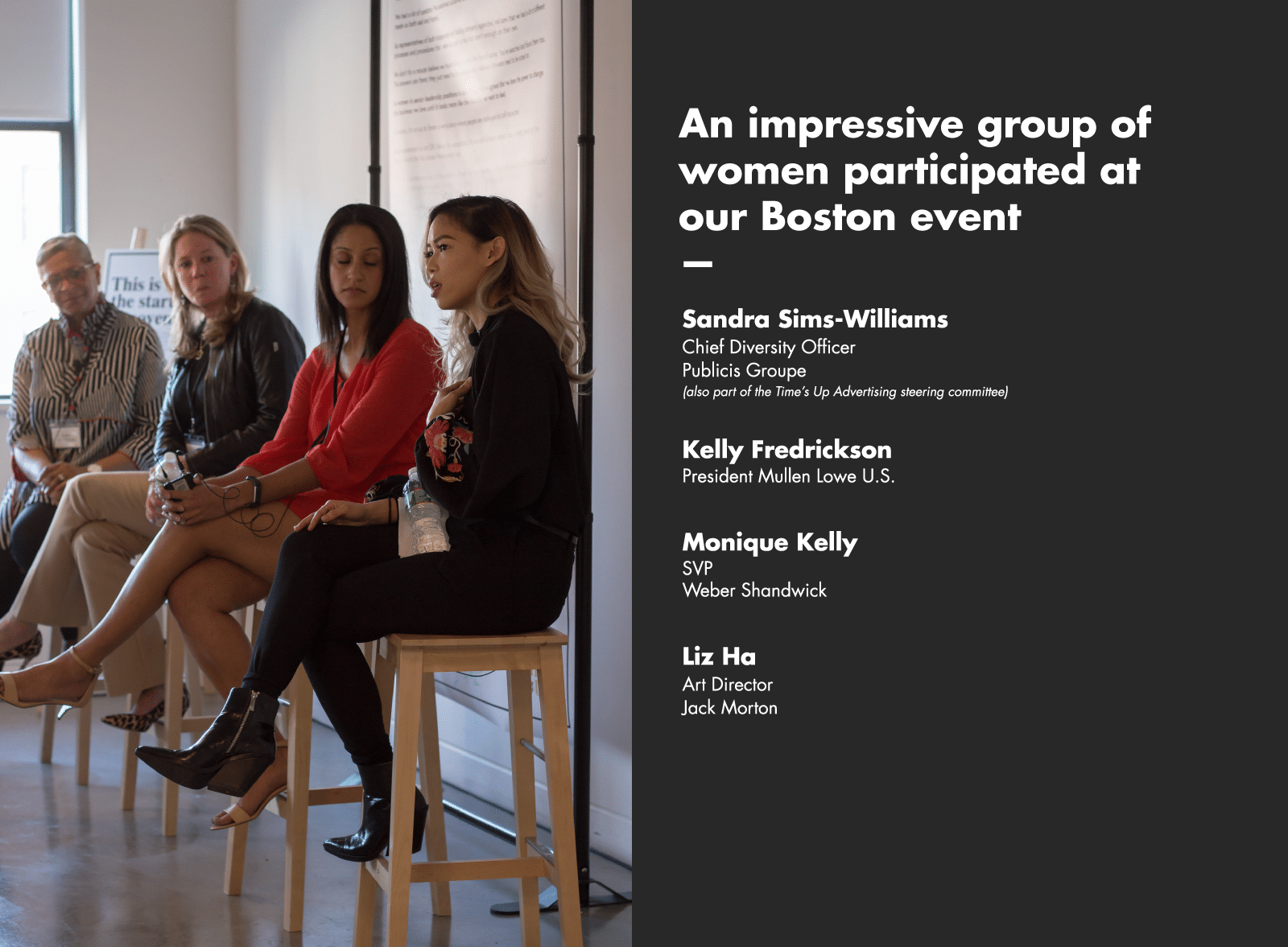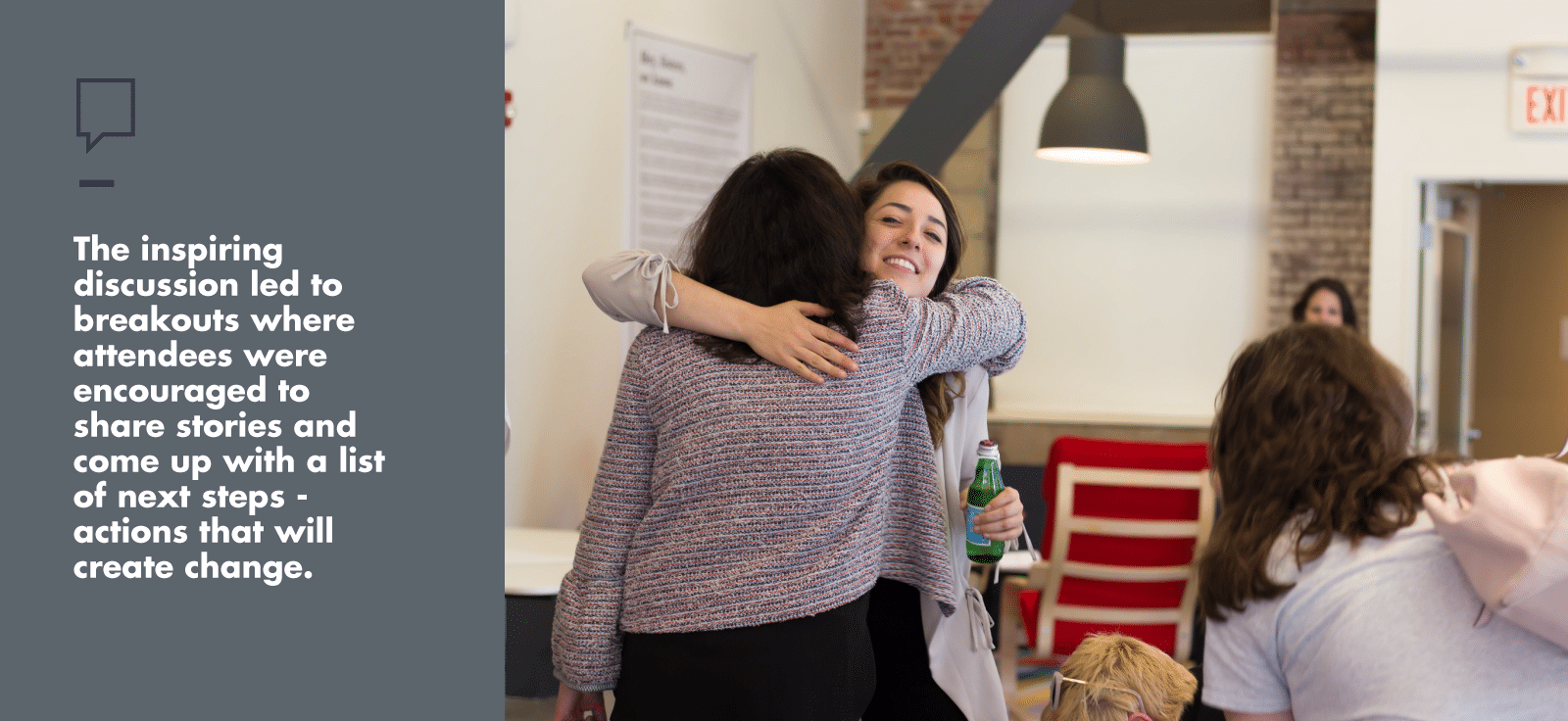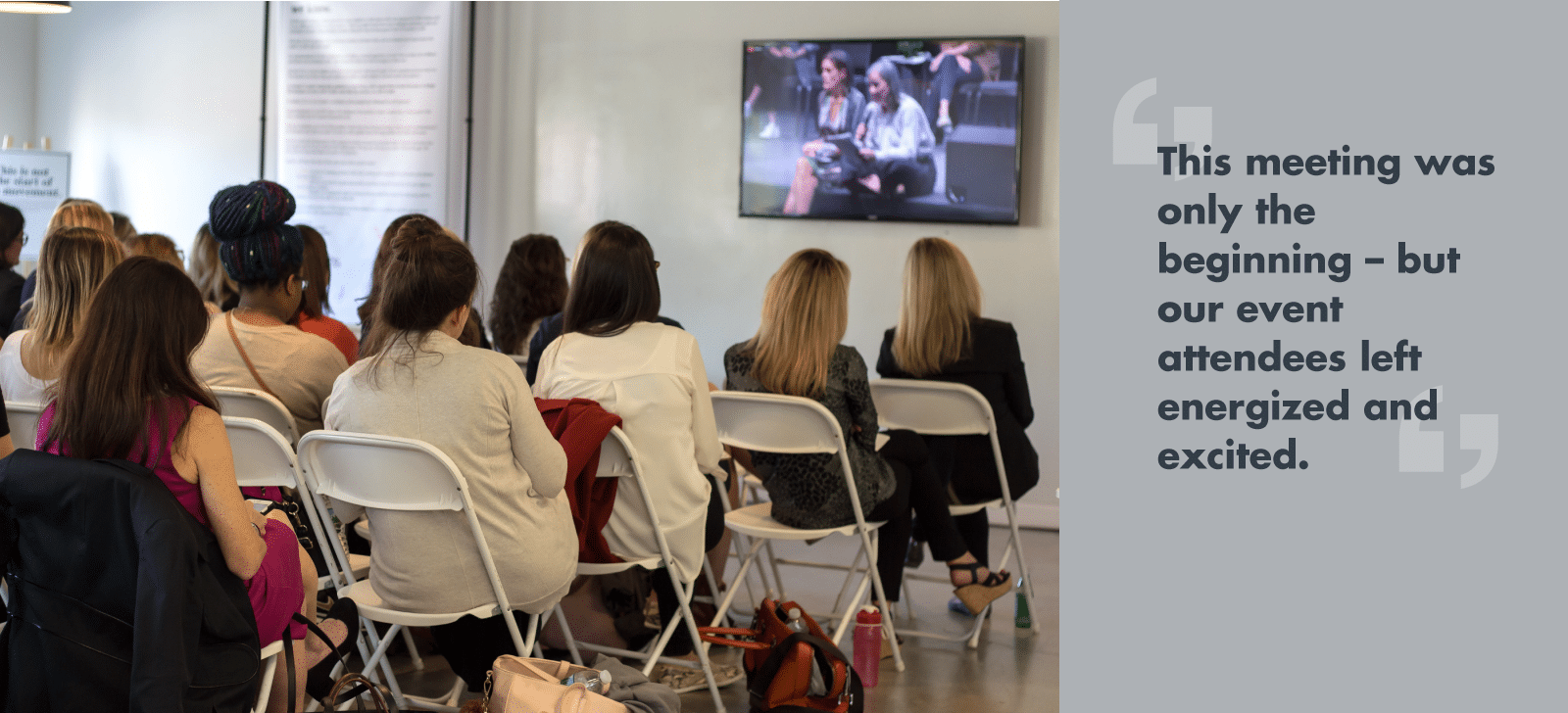Jack Blog
May 30th, 2018 By Jack Morton
When Gloria Steinem has something to say, you listen. That was the first takeaway of many during the first Time’s Up Advertising kick-off event. Sixteen locations around North America gathered sisters of advertising agencies to simultaneously share experiences and discuss strategies for the future. It was a powerful moment and one that Jack was proud to shepherd, as the host for the Boston event.

After an inspirational Facebook Live keynote featuring THE Gloria Steinem letter and Nina Shaw, one of the founders of the global Time’s Up movement, each host city launched into an intimate panel discussion. An impressive group of women participated at our Boston event – Sandra Sims-Williams the Chief Diversity Officer for Publicis Groupe (also part of the Time’s Up Advertising steering committee); Kelly Fredrickson, President Mullen Lowe U.S.; Monique Kelly, SVP Weber Shandwick, and our very own, Liz Ha, Art Director at Jack Morton. Each shared their own POV as urged by our adept moderator Mia Roberts, Vice President of Strategic Partnerships at Big Sisters of Greater Boston. Our women discussed personal experiences with harassment and exclusion, the true meaning of a diverse organization and what today’s woman can do to set the stage for tomorrow’s women. The overall consensus was clear: IT’S TIME TO BREAK THE MOLD.

The inspiring discussion led to breakouts where attendees were encouraged to share stories and come up with a list of next steps – actions that will create change. We loved hearing the feedback because at Jack we’ve already established a task force of women to encourage more open dialogues and inclusion efforts. The more inspiration, the better our work as an agency can be.
A few key takeaways emerged that could benefit any agency:
- Women must speak up and find their voice. Many women on our panel and our audience shared the fact that women tend to blame themselves when they are harassed, discriminated against or not included. They don’t advocate for themselves or say how they feel. Two of our panelists provided examples of how they have started to normalize behaviors once seen as uncomfortable or unacceptable. Both cited examples of crying in front of their CEO. Another talked about confronting a team of male colleagues to demonstrate the value they could add to an account by offering a female POV. Conclusion: We can normalize awkward issues if we talk about them and bring them out into the open.
- Mentorship, genuine connections, and support networks are needed. Many women shared the need for a stronger support network, particularly in the form of mentors. Pairing females in the industry with those with similar experiences and challenges can be a huge asset. The breakout teams discussed the need for allies they can trust and rely on as advocates. Many suggested that HR can be helpful in this role – ensuring that everyone in an organization is matched up with a mentor. Mentors can also help women learn how to advocate better themselves too – for salaries, promotions, inclusion. At Jack, we’ve set up a specific Time’s Up Advertising task force that is looking at more ways to boost our mentor program. Conclusion: Mentor programs can add value to any organization especially in helping women advance and campaign for themselves.
- Agencies must demonstrate that they have women’s backs. Many of the women felt that management could take a stronger stance on harassment – reinforcing zero-tolerance policies – especially with clients. Some said they would like to see agencies take a stronger position to encourage women to have families. Kelly Fredrickson cited a statistic that said “79% of college educated women have children but only 39% in advertising,” and she added that we need to do more to change the perception that for women to succeed they must sacrifice family. Many women agreed that HR should take the lead on this but they also expressed the need for a liaison or advocate outside of HR – from management or their department. Our Jack task forces are working to bolster the support systems we offer our women especially new moms. Conclusion: Agencies need to create a cohesive support system for women across multiple disciplines.

It was a powerful afternoon to share insights from within our industry. Our business has the power to show the world what diversity and equality really is. We can change perceptions through our work. We can set the tone for our clients, we can create diverse teams that reflect the reality of today’s consumers, we can give our women more support. This meeting was only the beginning – but our event attendees left energized and excited. After a glass of champagne to celebrate where we were headed, one attendee summed the day up by adding “now is the time to own our awesome.”